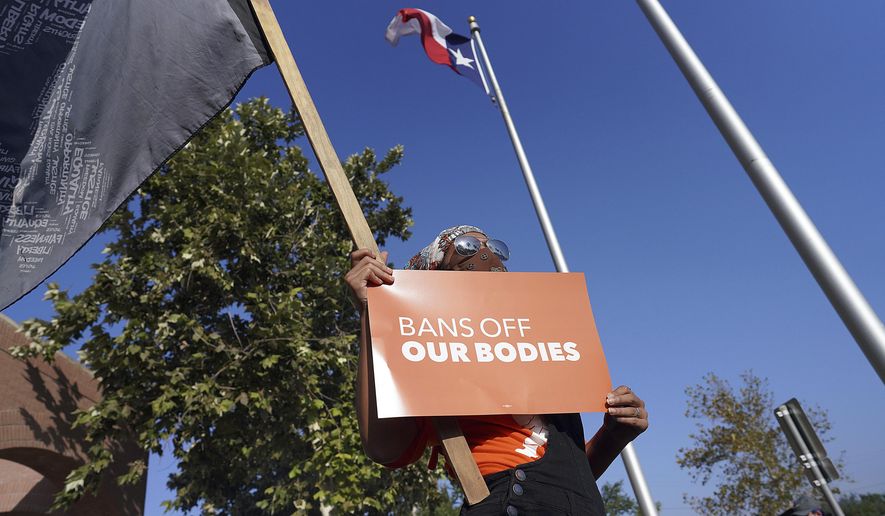Texas abortion providers returned to the Supreme Court Thursday, asking the justices again to get involved in their lawsuit against the state’s new law banning the procedure after about six weeks of pregnancy.
The Texas legislation is unique in that it allows private citizens — not government officials — to sue abortion providers for violating the ban.
Whole Woman’s Health and other pro-choice advocates have asked the justices to review their case instead of waiting for the 5th U.S. Circuit Court of Appeals to weigh the issue.
“Texans are in crisis. Faced with the threat of unlimited lawsuits from the general populace and the prospect of ruinous liability if they violate the ban, abortion providers have been forced to comply,” the petition read.
The pro-choice plaintiffs, represented by the Center for Reproductive Rights, argue the circuit court won’t hear their appeal before December and the law has already been in effect since Sept. 1.
As a result of the high court not initially blocking the law from taking effect when the abortion providers first sought an injunction from the justices earlier this month, clinics in neighboring states have seen an increase in Texas patients coming to them for abortions.
“An Oklahoma clinic reported that two-thirds of the phone calls they receive are now from Texas patients,” read the Center for Reproductive Rights’ press release. “Intervention by the Supreme Court is urgently needed because, despite the great harm the ban is causing, the Fifth Circuit has set a schedule that will not allow the appeal to be heard before December.”
Earlier this month, the Supreme Court divided 5-4, leaving a Texas law in effect while the case works its way through the lower court.
The justices did not resolve whether the law halting abortions after a fetal heartbeat is detected, which is usually at about six weeks, was constitutional, but the court noted the abortion providers fighting the law’s enforcement sued defendants who are not likely to enforce the law.
They had sued state and local officials, but under the law, it would be private citizens bringing the lawsuits against the providers. Anyone who successfully sues someone who assists in an abortion after six weeks would receive $10,000.
Chief Justice John G. Roberts Jr. and the court’s three Democratic appointees, Justice Stephen Breyer, Justice Sonia Sotomayor, and Justice Elena Kagan, would have blocked the law while the case continued in the lower court.
Abortion providers challenged the ban on an emergency appeal at the Supreme Court ahead of the legislation taking effect, arguing that most women do not even know they are pregnant by six weeks, usually when a heartbeat can be heard.
The Center for Reproductive Rights, the American Civil Liberties Union and allied groups launched a lawsuit this year to block the legislation, saying it would force abortion providers to spend massive amounts of money defending themselves in court and would subject them to harassment.
After lower courts refused to issue an injunction, they unsuccessfully sought review from the high court. Abortion providers in the state said they started turning people away at midnight on Sept. 1 — when the legislation took effect — so as not to break the law.
Since the Supreme Court decided in 1973 that women had a right to abortion in the case of Roe v Wade, pro-life advocates and conservative states have aimed to chip away at that ruling.
Texas has attempted to pass strict abortion restrictions in the past.
In 2016, the high court struck down some of the state’s requirements on abortion providers but more than half of the state’s abortion clinics had to close before the justices stepped in, according to The Associated Press.
The Supreme Court has agreed to decide if Mississippi’s ban on abortion after 15 weeks runs afoul of its 1973 ruling in Roe v. Wade during its next term, which begins in October.
• Alex Swoyer can be reached at aswoyer@washingtontimes.com.




Please read our comment policy before commenting.